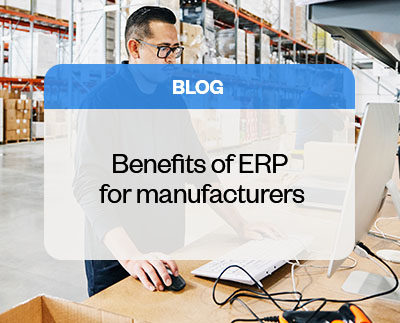
Though we're an evolved species, humans have yet to develop the skills to manage complex technological developments with the speed and accuracy of automated processes. Humans still input the necessary formulae to run these automated processes but depending on your future outlook (and how much science fiction impacts your worldview), that may soon change. Rest easy, though—our relevance in the workforce is still intact. For now.
But the labor force is changing, with many veteran employees opting to retire and fewer young men and women poised to take their place. What can these newer employees expect once they land on the shop floor?
Labor is scarce, but demand is high. How do you increase production with a reduced workforce? The adage "work smarter, not harder" applies to today's manufacturing conundrum. The "smarter" part includes automation and integration, requiring a fair amount of technology that often takes the place of a living, breathing person. Automation and integration are the hallmarks of a comprehensive Enterprise Resource Planning (ERP) system that focuses on planning the use of resources and takes production from order entry through scheduling, capacity planning, inventory, purchasing, shipping and delivery.
A fully integrated ERP system will also help businesses manage lead times in the new age of supply chain inconsistencies that present companies with an entirely new set of challenges to overcome.
On the other hand, a Manufacturing Execution System (MES) solution offers users a way to maintain precise control of the manufacturing process. MES allows businesses to generate reports based on real-time information and can monitor and correct the variables that affect efficiency. An MES system synchronizes all data associated with production to provide the least amount of waste and a more profitable outcome.
These solutions address most of the problem areas on today's factory floor. The benefits of ERP and MES for manufacturers include:
- A bird's eye view of production where
- Employees can see all processes at once.
- Employees have an accounting of materials on hand.
- Tracking production at each stage of the process means
- Material status checkpoints.
- RFID technology updates product status.
- Capacity Planning where you
- Can manage events.
- Can manage bottlenecks.
- Experience real-time data with detailed reporting in BI.
- Experience just-in-time inventory.
- Business Intelligence (BI) where
- Real-time data is available on demand.
- Reporting capabilities enable intelligent business decisions.
- An integrated workflow where
- End-to-end solutions belong to the same system.
- You can alleviate isolated areas of automation.
- All machines "speak" the same language.
- A digital factory is where
- Machines gather data regarding their operation.
- Users receive information back from the machine (bi-directional).
- Machine reporting capabilities exist.
Before ERP and MES systems with improved technology played a role in manufacturing, the factory floor was a mélange of work cells where various pieces of machinery performed their function without regard to their relationship to the other machines on the floor. There was no consistency, no quality checks, and no standardization of procedures.
The future of MES and ERP systems includes all three of these. Automation drives consistency, bi-directional machine reporting, and eliminates those isolated areas of automation.
But how do you get everyone on board? How do you convince the factory's decision-makers that the future of their business lies in adapting a technological solution to run their production? How can you show them the benefits of ERP?
If the past three years' pandemic has a silver lining, it is this: COVID has forced manufacturers to make business decisions based on dramatic fluctuations within the workforce. We have seen split shifts, hybrid work schedules and an overall reduction in labor. Fewer men and women on the shop floor require manufacturers to discover ways to make their products with a robust ERP system and without their pre-pandemic numbers of employees.
Automation and integration on the shop floor make this possible. The latest ERP trends are at the forefront of a more extensive digital transformation within the manufacturing world.
Share this Post

